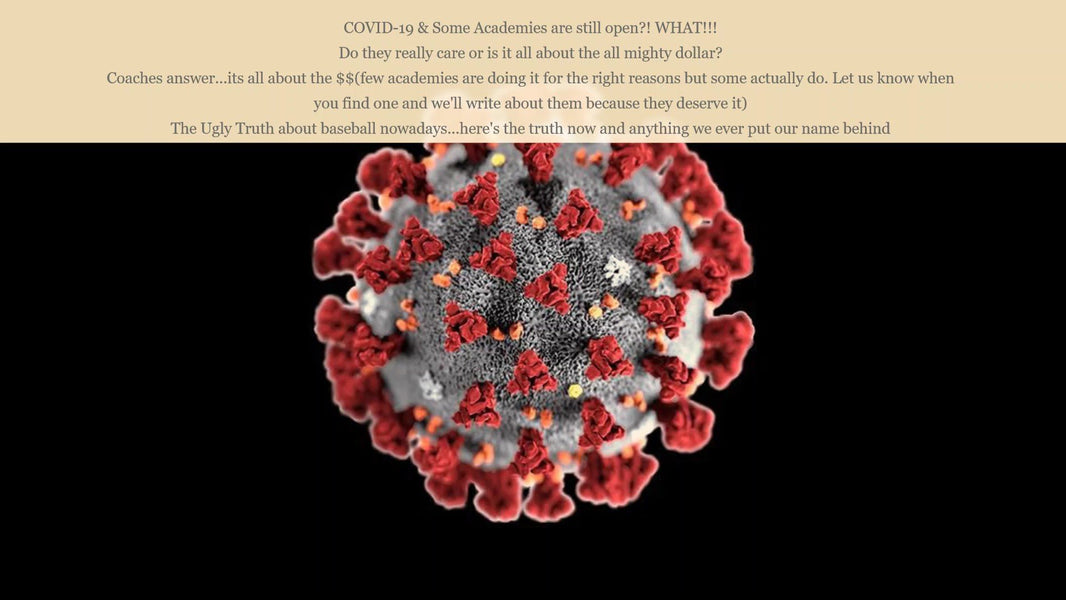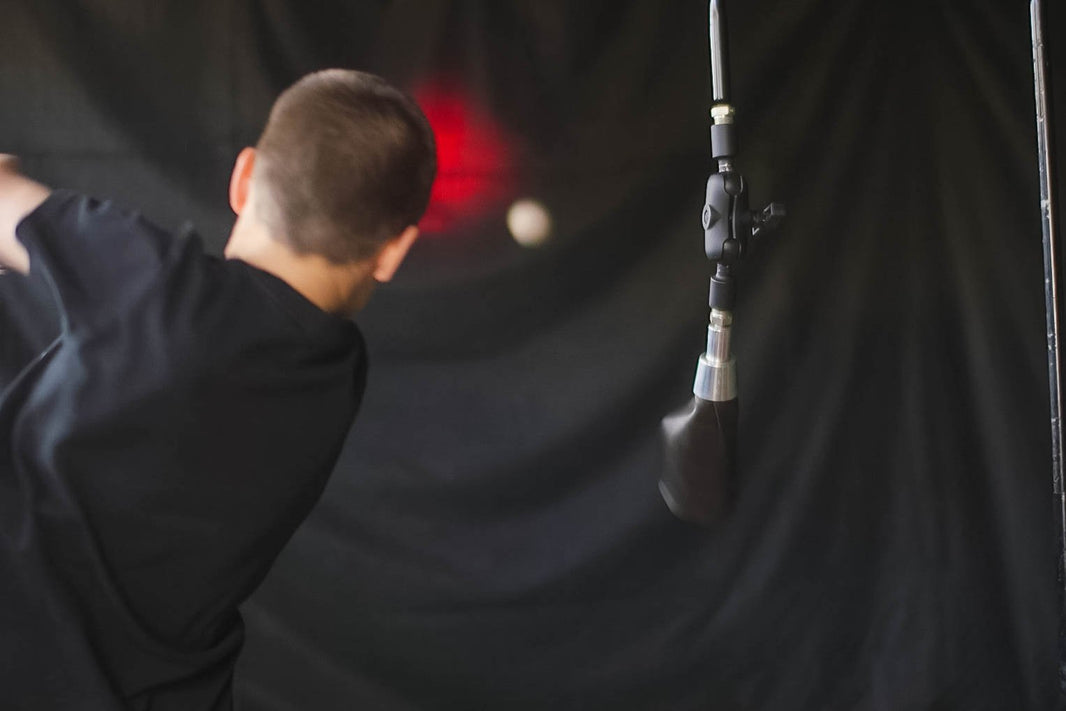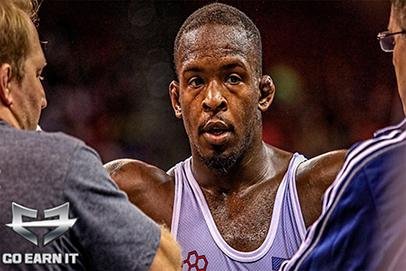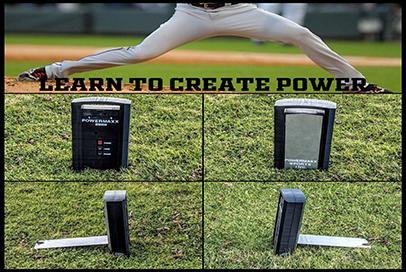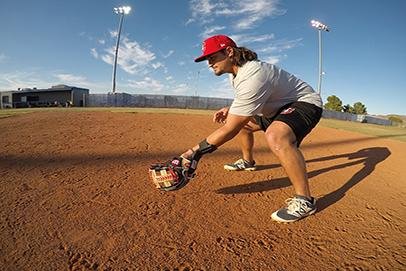I know parents have the best intentions for their sons and daughters. They look for ways to help their kids reach their full potential with what they believe to be solid athlete parenting tips. However, without realizing it, they use words and actions that hinder their children’s development. Often, they use the same coaching and parenting techniques that they experienced without realizing times and kids have changed. Of course, the reason kids have changed is how parents and coaches treat youth sports now. The intensity often rivals that of professional sports.
There is good news. Parents who deal with these issues and concerns efficiently will enjoy their child’s career, as they guide them to be “all that they can be.” The answers are out there if they are willing to read many of the current studies and books about how better to deal with the modern athlete.


 Sports competition plays a huge role in our culture. I believe it may be the best medium to teach life lessons to our youth. It presents many teaching moments for parents. The problem is that solid athlete parenting tips are not widespread enough to make a difference for many youth athletes. Sure, coaches have a bigger role in today’s youth sports arena, but, the groundwork must begin at home.
Sports competition plays a huge role in our culture. I believe it may be the best medium to teach life lessons to our youth. It presents many teaching moments for parents. The problem is that solid athlete parenting tips are not widespread enough to make a difference for many youth athletes. Sure, coaches have a bigger role in today’s youth sports arena, but, the groundwork must begin at home.There are many questions and issues to deal with for parents. What should they do when their child cries? How can they be more encouraging without pushing their kids? How can sports be more fun for their kids? What should parents say to their kids after a tough game? How do they prevent burnout in athletes? Should a child play travel ball? What makes a good sports parent? Most importantly, how do parents inspire young athletes?
Each child and situation is different so often a trial and error process is necessary. Following are some of the best athlete parenting tips to help kids enjoy the games and mature into responsible teenagers and high school athletes and people.
* Always keep in mind the age of the players.
* Ensure the physical and emotional health of the child is a top priority.
* Realize that sports are only games and one aspect of many aspects of a child’s life, and not the most important one.
* Always remember that it is the player’s, not the parents’ career.
Indispensable athlete parenting tips
- After a tough game, say, “Hang in there, we’ll figure it out.” We is a powerful word that will let your child know you are there to help, and they do not have to figure out the lack of success on their own.
- Always point out little signs of improvement, even if it is not showing up in game results.
* Stay positive and try something helpful. Having the player perform some fundamental drills at home can give immediate results. Look up some practice moves in books, videos, or online to provide the player with some constructive things to work on. Ask the player’s coach to give a few drills to h
- Never start grumbling about the coach in front of the young player. Parents should watch their comments and attitudes. Often, the players are happy playing, having fun, and being around their teammates, and only become disenchanted with their coach when Mom and Dad are not satisfied
- Encourage your son or daughter to work extra hard at practice. Most coaches will appreciate the extra work effort and reward the player. Also, encourage your child to do little things like picking up equipment at the end of practice. This help makes a good impression on the coach and may help the situation.
- Explain to your child that in the end, she will be a better person for the experience, and she should not blame “the sport” for the problem with the coach.
- After a game, ask, “Did you have fun?” Let the player talk about the game if they want to, but don’t start telling them things they did wrong. Parents will create tension if they immediately start asking why they did or did not do something in the game. Talk about other events of the day too. Revisit their performance later, either after dinner or the next day. Provide some positive ideas for improvement at this later time.
- The same goes when practicing together—do not immediately start giving instructions. Allow for a warm-up time and a few mistakes before giving some constructive suggestions.
- Speak in a matter-of-fact voice when giving instructions and save the emotional tone for when they do it correctly. It is always better to describe the action. For example, saying “that last throw or swing wasn’t correct” is better than saying, “you cannot do it that way.” Placing too much emphasis on every game can put unwanted stress on young athletes. “Being there” for them does not mean parents have to be at every game.
- If the child seems to be more nervous when the parent is at the game and is not having as much fun as they do at practice, the parent should miss a game from time to time or watch the game from a distance. Missing a game can help the child realize their performance isn’t the most crucial thing in their parent’s day or life. It may be just the game pressure, which is causing the extra nervousness, but it is worth finding out what is causing
- Always avoid any looks of disgust, the look away, the rolling of eyes, the words under the breath, and the negative comments when the player is practicing or playing.
- Do not allow embarrassing behavior on the field. Parents should not allow fits of temper or get mad at umpires, coaches, or other players. The parent may have to threaten to have the player miss the next game if the behavior continues. Follow through with the threat if the situation does not change, but do not give up on the player. Many great players started with anger problems, only to go on to greatness after they learned to control their anger.
More Athlete parenting tips
- Give the player a little time to sulk after the game, but do not allow throwing things, swearing or negative comments about themselves or others. Most players will come around after a short time and a good meal. Try to get the player’s mind off his or her performance as soon as possible, and only return to it later if the player brings it up.
- Tell the player you believe in them, and they should believe in themselves. Stay positive with the player and have patience. However, do not overdo the praise. They will recognize false praise and tune it out or get upset.
- Watch for exhausted players. Players who play too many games in a day or week become physically and emotionally drained. Overdoing it is more common these days because of the greater emphasis on travel teams. Give the players a few days away from the game to rest and clear their minds.
Focus on the effort level of the players after games, not on the result.
- Do not use rewards for winning or penalize the team for losing. An example of this is promising to go to the players’ favorite restaurant as an incentive if they win or threatening to make the player run if the team loses.
- Teach the players about the things they can control—their mental and physical preparation—and they cannot always control the outcome.
- Occasionally ask the coach what areas your child needs to improve in and for any tips to help them go about that.
- Tell your child inspiring stories about famous athletes.
- Encourage them to keep playing and practicing, if they so desire, because the outcome can be different the next time.
- Find time to work with their son or daughter as soon after games as possible, as long as the child is interested. Both parent and child will feel better by being proactive and not dwelling on the bad game. This move emphasizes the next game, instead of reflecting on the last one and keeps everybody positive and hopeful. For parents who do not have the time or expertise to help, enroll the child in private lessons, clinics, or camps. Parents will have peace of mind knowing they are doing everything possible to help their child succeed.
- Never force kids to practice but continue to explain that good results come with hard work. Instilling the importance of a good work ethic in their sons and daughters is one of the most important lessons the parent can give their kids. A good work ethic will serve them in every area of the future. Learning ways of making practice fun can be a great help also.
- Most of all, parents should not relive their playing days through their kids. Recognizing their kids are unique individuals who must be themselves allows the kids the freedom to grow as athletes and people. It is essential for kids to realize they are so much more than how they perform on a playing field.






